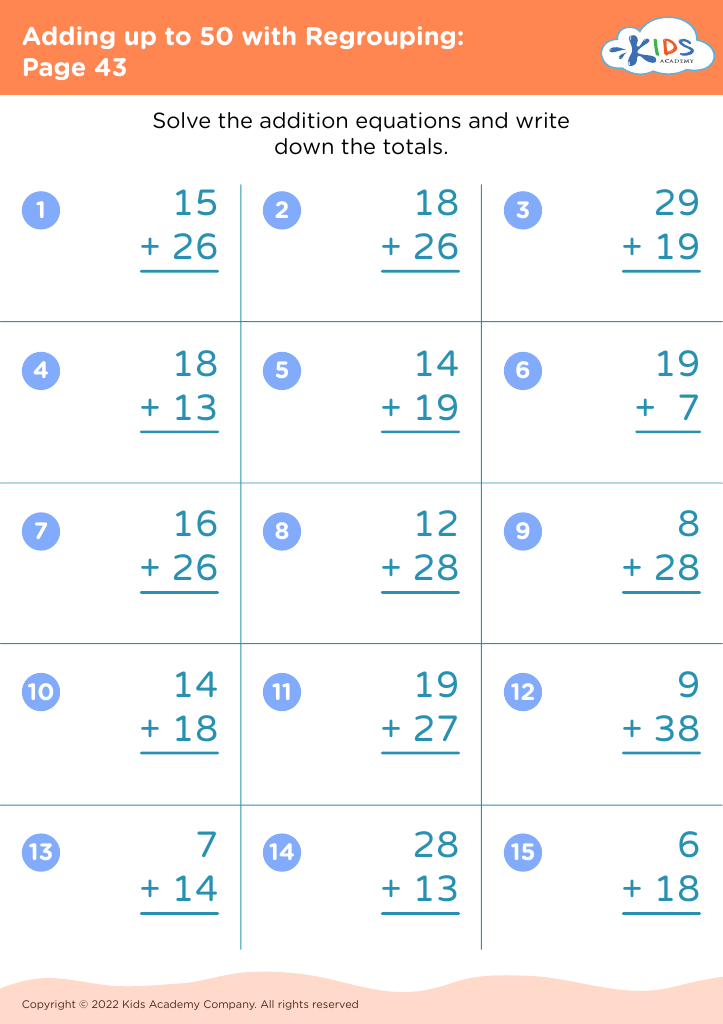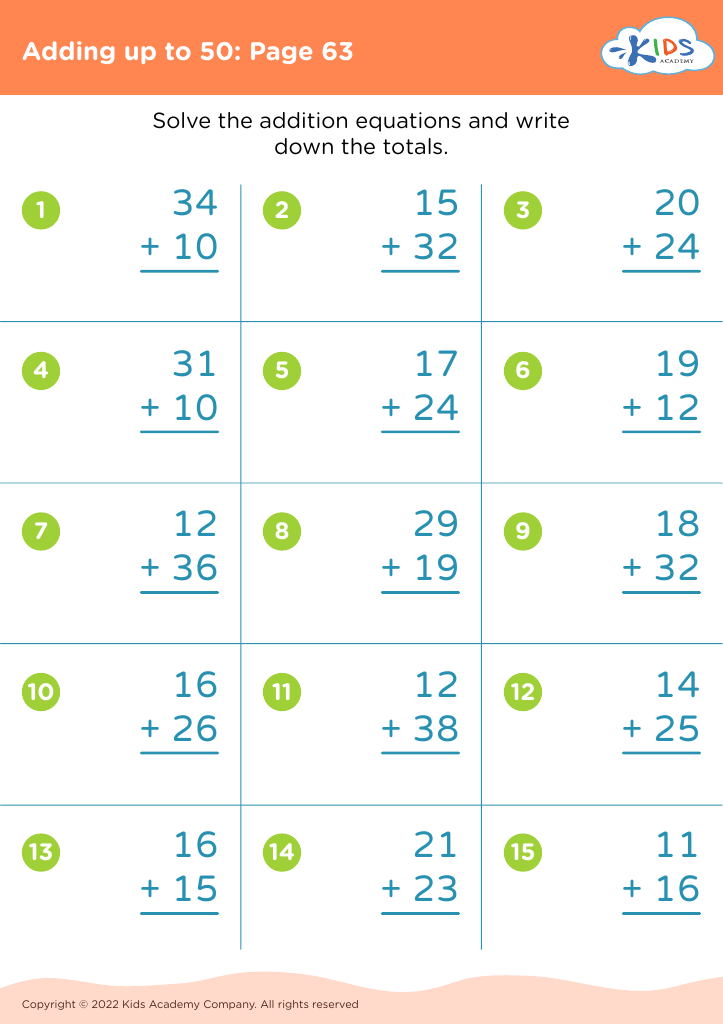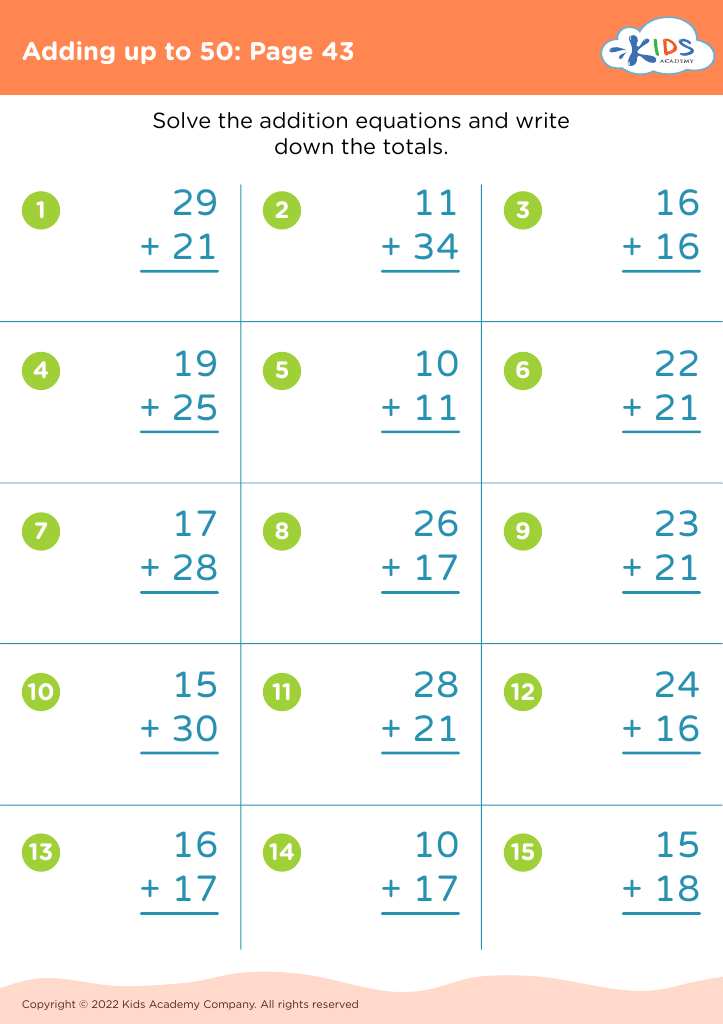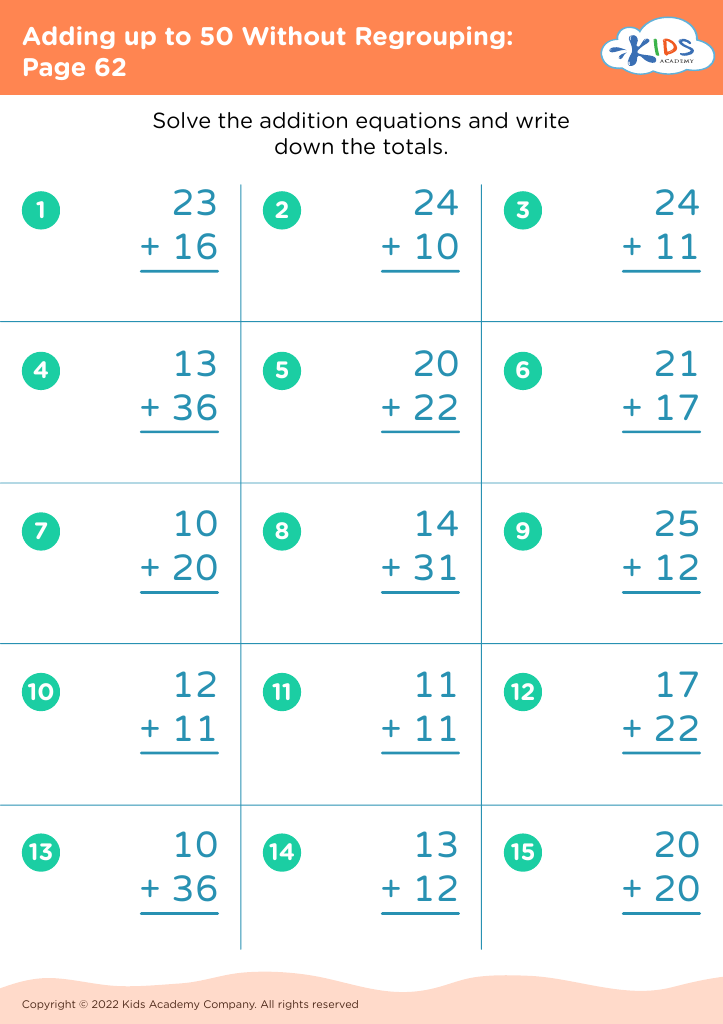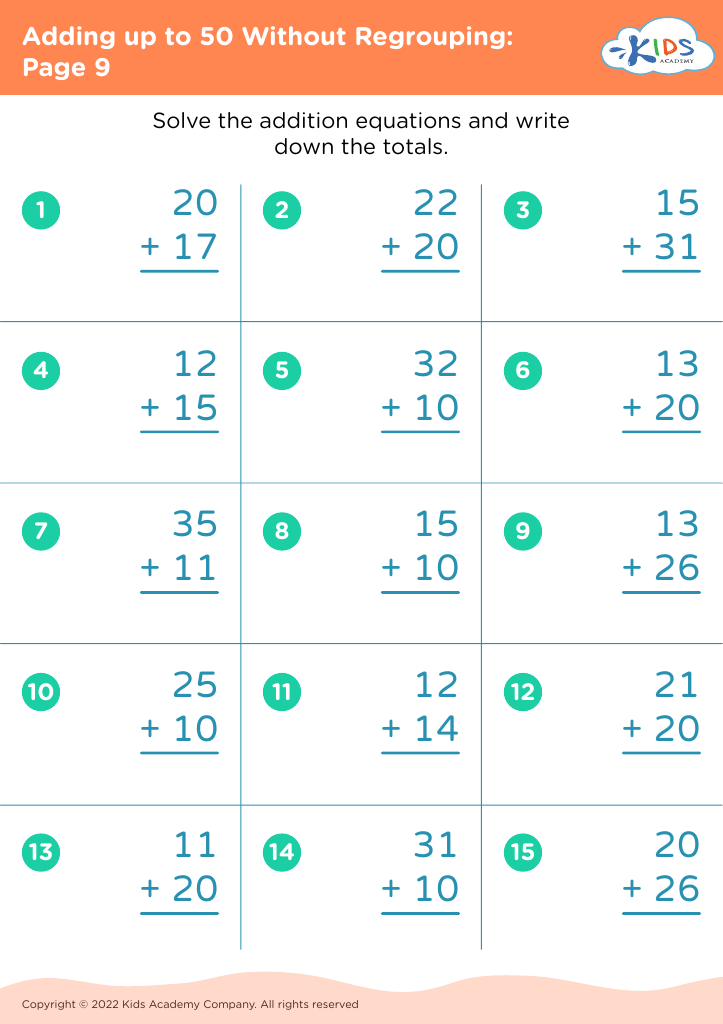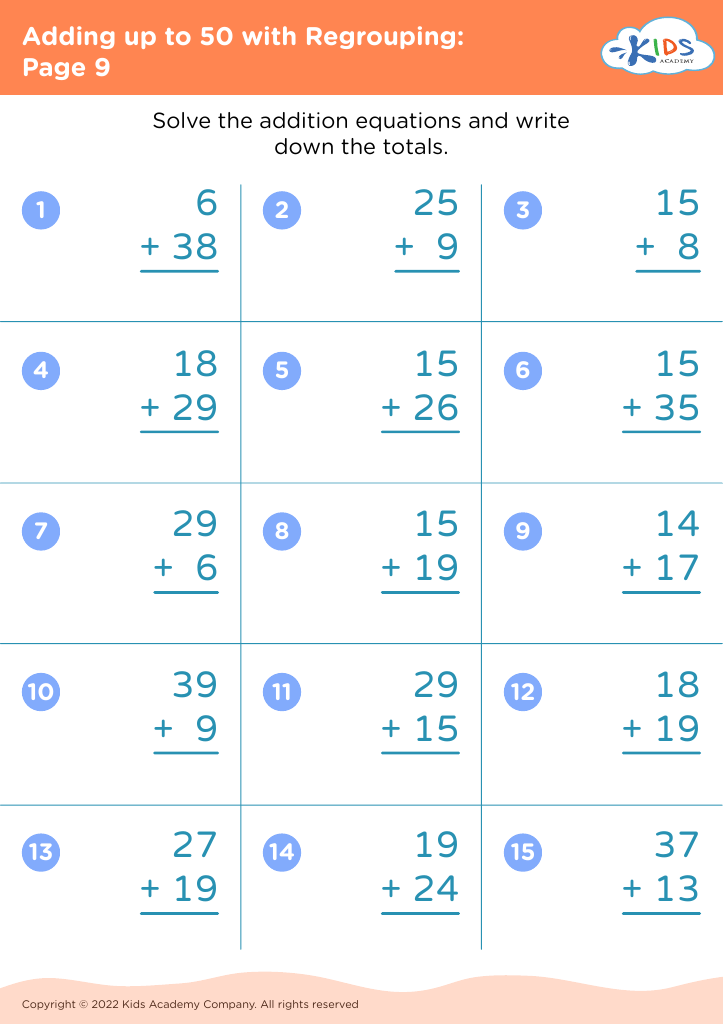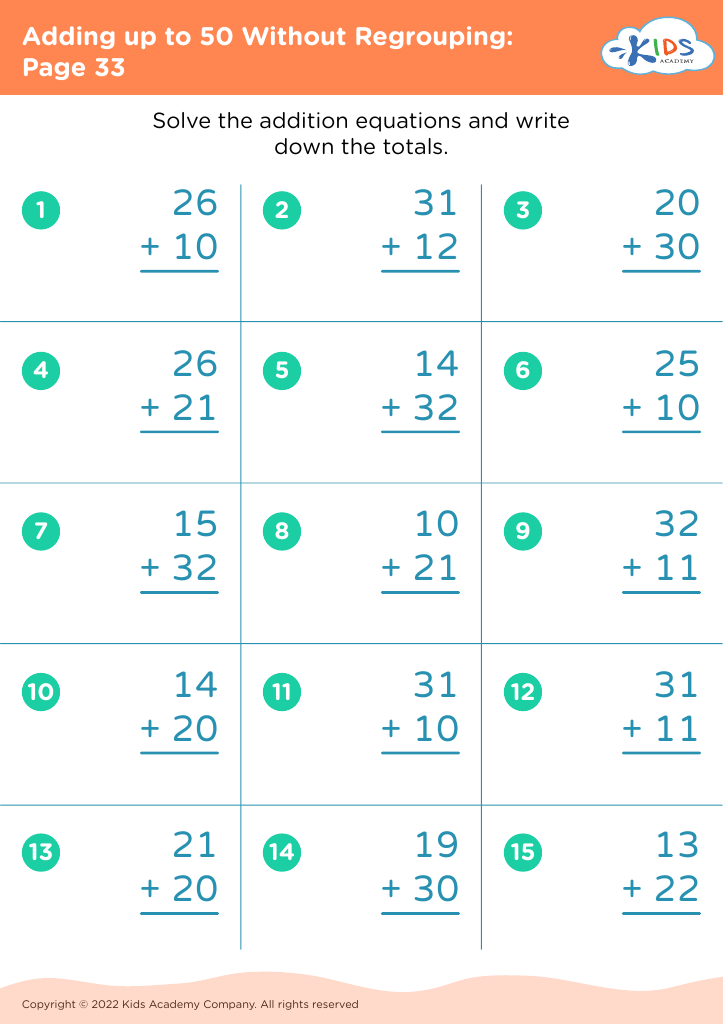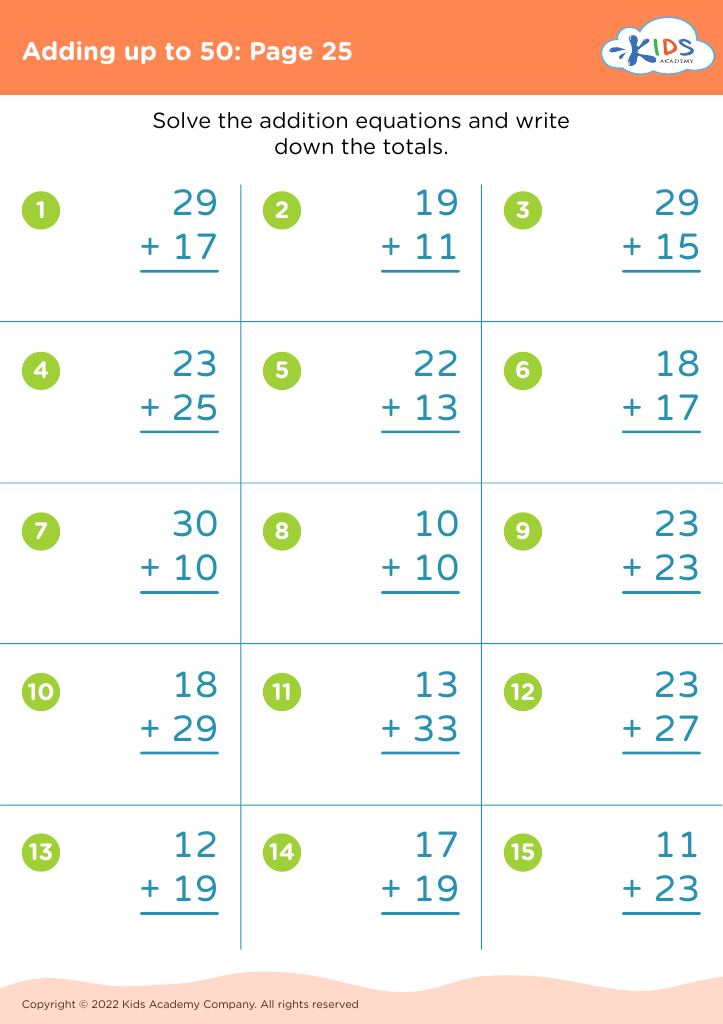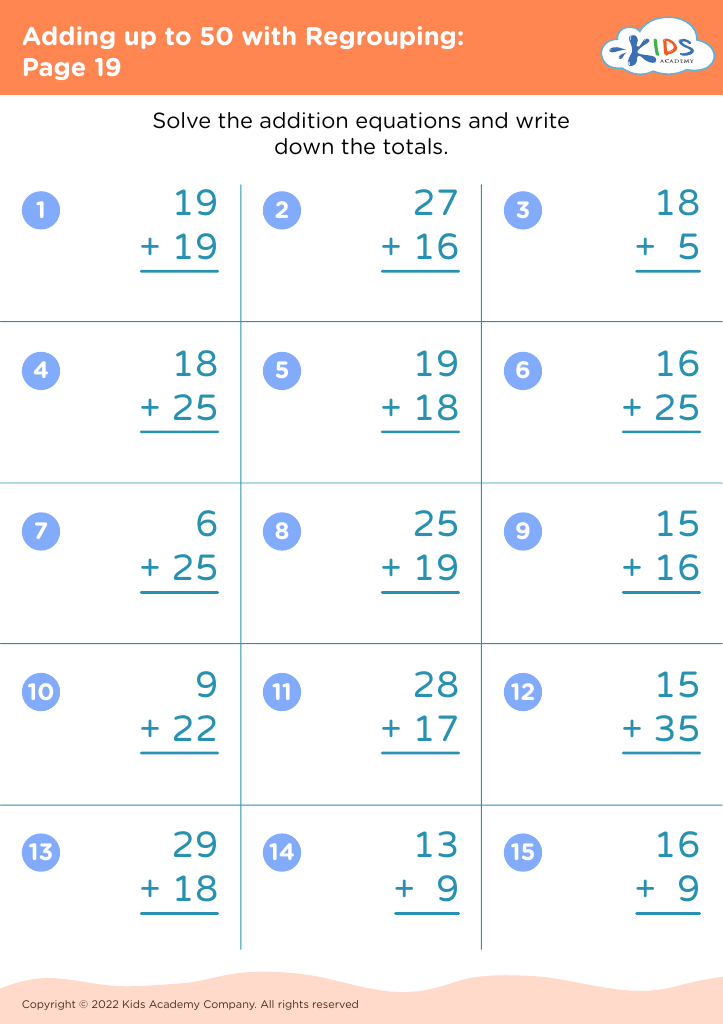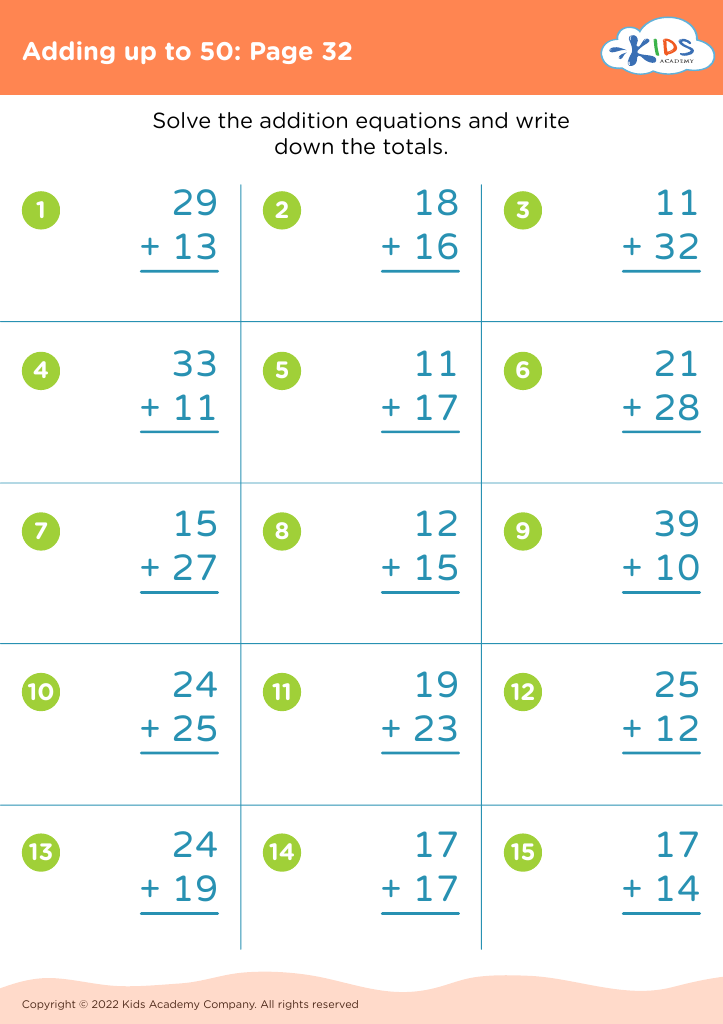Addition Practice Adding up to 50 Worksheets for 8-Year-Olds
16 filtered results
-
From - To
Boost your child's math skills with our "Addition Practice Adding up to 50 Worksheets for 8-Year-Olds" from Kids Academy! Designed specifically for young learners, these engaging worksheets focus on enhancing addition abilities within the number range of up to 50. Featuring a variety of fun and educational exercises, children can practice and solidify their understanding of basic addition concepts, improving their confidence and speed. Perfect for both classroom and home use, these printables support consistent practice and steady progress. Help your child master addition with ease through expertly crafted activities that make learning enjoyable and effective. Start practicing today!
Ensuring that 8-year-olds practice addition up to 50 is critical for their foundational math skills. At this age, children are at a pivotal point in developing their numerical understanding, which forms the bedrock for more advanced mathematical concepts. Consistent addition practice helps solidify their grasp of basic arithmetic, fostering confidence and competence in handling numbers.
This practice enhances cognitive abilities, including memory, attention, and problem-solving skills. As children repeatedly engage in adding numbers up to 50, they begin to recognize patterns and develop mental math capabilities, which are essential for quick and accurate calculations in both academic settings and everyday life.
Moreover, proficiency in addition aids in understanding and performing other mathematical operations such as subtraction, multiplication, and division. It’s akin to learning the alphabet before being able to read and write proficiently. A strong grasp of basic math encourages a positive attitude towards the subject, reducing math anxiety and promoting a continuous passion for learning.
For teachers and parents, consistent practice can also reveal children’s unique mathematical strengths and weaknesses, allowing for targeted support and individualized instruction. Investing in children’s early arithmetic skills lays a robust foundation for future academic success and nurtures lifelong numerical proficiency.


